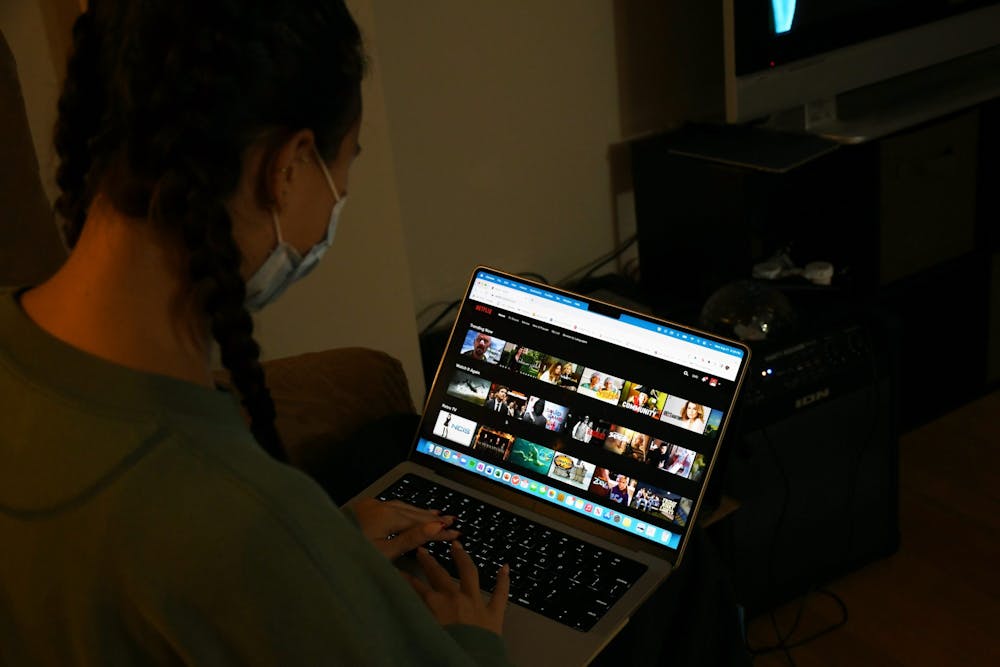In the last decade, streaming services have become some of the most dominant forces governing audience consumption of entertainment. From comedy television shows to horror movies and everything in between, corporations like HBO Max, Netflix and Hulu are constantly producing content or staking their claim in works that have already been aired.
But recent news about streaming services has been worrying. Warner Bros. Discovery –– the media conglomerate that owns HBO Max –– lost $3.4 billion dollars in its first-ever quarter as a combined company, which ran from April 1 to June 30. Though making profits through production and in its studios, Warner Bros. Discovery is currently not making money through streaming.
Of course, losses in the entertainment industry are a given. Not every single movie or show is going to win audiences over, regardless of celebrity affiliation or crowd-pleasing dialogue. However, a titan like Warner Bros. Discovery failing so intensely is shocking to see, considering how popular streaming services have become over the years.
It seems that attempts to penny-pinch at every turn are to blame. David Zaslav, chief executive officer and president of Warner Bros. Discovery, has openly admitted that focusing on “financial opportunities” was a big priority for the company in a memo to his staffers. In a myriad of cost-cutting decisions, he has shut-down CNN+, is making moves to implement one streaming platform for the whole company and most recently has okayed the scrapping of content on HBO Max.
Following the merger between Warner Bros. and Discovery+ earlier this year, HBO Max shelved 20 originals and 36 titles overall from their library to save dough, including 200 episodes of Sesame Street and recent favorites like “Infinity Train” and “Summer Camp Island.”
To the dismay of audiences and creatives alike, Warner Bros. Discovery has been unafraid to throw films and shows away without much warning. Now, original, illustrative media on their platform will be sent to the depths of the internet where they may only be found through pirating, many Twitter users say. Creators, like Owen Dennis of “Infinity Train,” felt left in the dust following the company’s decision and “had no idea [the chop] was coming,” he writes in a Substack post.
Student filmmakers and creators are taking notice of how tense the environment is becoming in the cinema sphere, fearful of what this could mean for their beloved artform in the future.
One of them is Max Berengaut, a fourth-year College student and president of the Virginia Filmmakers/Filmmakers Society.
“In general, the film industry sees what they create as numbers in a spreadsheet,” Berengaut said. “This somewhat new environment’s worst problem is that there is no longer any incentive to be original or inventive. There is only the incentive to generate income for the company stakeholders.”
Educators in the field have also noticed how profit hungry streaming services have become.
“It is all about the bottom-line and what makes business sense,” Matt Marshall, University Media Studies professor, said. “It is a shell game.”
However, Marshall does point out that creators and audiences should not lose faith in where the film industry is going.
“With more platforms there are more opportunities for writers, actors and filmmakers,” Marshall said. “The downside is there is a lot more content to sift through. There will be a lot of canceled shows but a better chance that an unseen gem can get through.”
Only one of many streaming platforms out there, Warner Bros. Discovery may simply be operating as a business would in their situation, trying to stay afloat after a major change in organizational structure. But –– as evidenced in their high losses this year –– taking highly-rated content away from viewers and creatives seems to have been the wrong answer.
Although Zaslav’s memo mentions creating a “collaborative culture” that operates as one team, his decisions to disregard the hard work that creatives have put in stands as rather contradictory to his desire for cohesiveness. Certainly, creators do not feel the level of trust that Zaslav is aiming for, as both Berengaut and Dennis pointed out.
Still, according to Berengaut, the way that Warner Bros. Discovery and other streaming services are conducting their businesses should not have an effect on how art is produced and received by others. Viewers and creators have the real power in film media, he believes.
“The only solution I can see is to prove with our own brains that there is still something worthwhile in art left in the world,” Berengaut said. “We need to create stuff that’s irrepressible, wonderful, new, genius, secular — and most importantly — human.”







